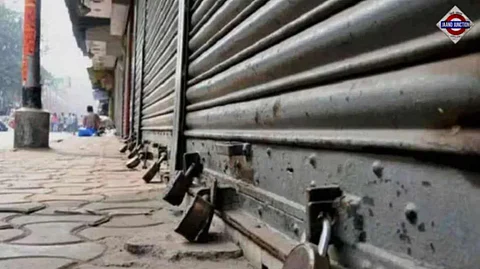

Over 25 crore workers - from sectors ranging from banking, insurance, postal services to coal mining - are expected to participate in a nationwide general strike on Wednesday. The strike, called by a joint forum of 10 central trade unions, has been described as a 'Bharat Bandh' to protest against what the unions label as “anti-worker, anti-farmer, and anti-national pro-corporate policies” of the central government.
The trade unions have issued a call to “make the nationwide general strike a grand success,” citing months of intensive preparations across formal and informal sectors. “More than 25 crore workers are expected to take part in the strike. Farmers and rural workers will also join the protest across the country,” Amarjeet Kaur of the All India Trade Union Congress (AITUC) told news agency PTI.
The widespread action is likely to severely impact key public services and industries. “Banking, postal, coal mining, factories, and state transport services will be affected due to the strike,” added Harbhajan Singh Sidhu of the Hind Mazdoor Sabha.
At the heart of the unrest is a charter of 17 demands submitted by the unions to Labour Minister Mansukh Mandaviya last year. The unions claim the government has ignored these demands and failed to convene the annual labour conference for the past decade - a move they say reflects the government's apathy toward the labour force.
In a joint statement, the forum alleged that the government’s labour reforms, including the introduction of four new labour codes, are designed to erode workers' rights. These codes, unions argue, aim to dismantle collective bargaining, weaken union activities, increase working hours, and shield employers from accountability under labour laws.
The government has abandoned the welfare state status of the country and is working in the interest of foreign and Indian corporates, and it is so evident from its policies being pursued vigorously, the forum said.
Trade unions have been fighting against "privatisation of public sector enterprises and public services, policies of outsourcing, contractorisation and casualisation of workforce", it said.
The four labour codes that have been passed by the Parliament are meant to suppress and cripple the trade union movement, increase working hours, snatch workers' right to collective bargaining, right to strike, and decriminalise violation of labour laws by employers, the statement said.
The Samyukta Kisan Morcha and joint front of the agricultural workers unions have extended support to this strike action and decided to make massive mobilsations in rural India, the union leaders said.
Trade unions had earlier observed similar nationwide strikes on November 26, 2020, on March 28-29, 2022, and on February 16 last year.
